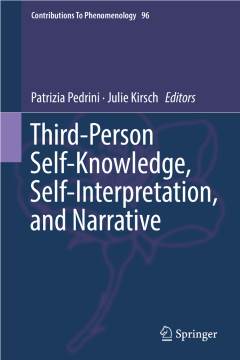Repository | Book | Chapter

(2018) Third-person self-knowledge, self-interpretation, and narrative, Dordrecht, Springer.
Recently, Matt King and Peter Carruthers have argued that the Real Self accounts of moral responsibility or autonomy are under pressure because they rely on a questionable conception of self-knowledge of propositional attitudes, such as beliefs and desires. In fact, they defend, as a plausible assumption, the claim that transparent self-knowledge of propositional attitudes is incompatible with mounting evidence in the cognitive sciences. In this chapter, we respond to this line of argument. We describe the types of self-knowledge that might plausibly be involved, as psychological prerequisites, in the processes of identification and integration that lead to the constitution of the real self of an agent. We argue that these forms of self-knowledge do not require the type of transparent knowledge of propositional attitudes that, according to King and Carruthers, is incompatible with the results of contemporary cognitive science.
Publication details
DOI: 10.1007/978-3-319-98646-3_10
Full citation:
Malatesti, L. , Čeč, F. (2018)., Identification and self-knowledge, in P. Pedrini & J. Kirsch (eds.), Third-person self-knowledge, self-interpretation, and narrative, Dordrecht, Springer, pp. 177-189.
This document is unfortunately not available for download at the moment.



